Lotus Eaters - Interview Part 1
by Anthony Strutt
published: 29 / 7 / 2010
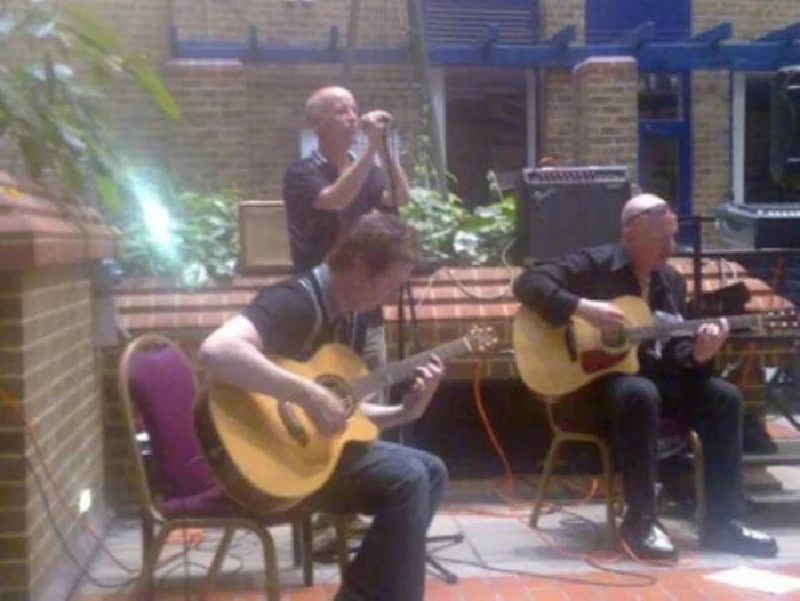
intro
In the first part of a two part interview, Peter Coyle and Jem Kelly from reformed new wave group the Lotus Eaters talk to Anthony Strutt about the their group's early years on the influential 80's Liverpudlian music scene
The Lotus Eaters are a Liverpool-based new wave group and were formed in 1982 by Peter Coyle on vocals and Jem Kelly on guitar. Peter had previously been the front man with the Jass Babies and Jem had been the guitarist in the Wild Swans, appearing at the beginning of 1982 on their 'Revolutionary Spirit' single which was the last single released by Bill Drummond's influential Zoo label. Other former members of the Lotus Eaters have included Michael Dempsey, who was the Cure's original bassist, and pianist Ged Quinn who was also in the Wild Swans. The Lotus Eaters' first single. 'The First Picture of You', was an international hit, escalating into the charts in 1983 before the group had even played a live gig. The band released an album, 'No Sense of Sin', in 1984, but split up in 1985. They reformed again in the late 90's and have played together off and on since then. In the years before they reformed, Jem had a further stint in the Wild Swans, appearing on their eventual 1988 debut album, 'Bringing Home the Ashes', while Peter worked on Liverpool's dance scene and also completed a degree in Psychology. The Lotus Eaters' second album 'Silentspace' came out in 2002. This year has seen them digitally release their third album, 'A Plug-In Called Nostalgia' and also play a short four date tour of the United Kingdom, including their first London show in ten years at the Barfly. This interview was originally supposed to take place at the Barfly gig, but fell through at the last minute. It took place instead a few days later at a secret second gig in London, which was a benefit for Guy's Hospital. I last saw the Lotus Eaters in 1985 at the Marquee Club and I last saw Jem in 1988 when the Wild Swans toured the 'Bringing Home the Ashes' album. I found them both totally charming with Jem having a lot to say, and Peter being a total gentlemen and, despite having one of the best voices to ever come out of Liverpool, for once not shouting about it. PB: First of all why why the name the Lotus Eaters? JK: Peter can correct me if I get this wrong, but he invited me down for a session to play guitar and there was no real space to do it. Peter's band, the Jass Babies, were doing a radio session. We made an executive decision, which was a terrible decision, but the sort of thing that you do when you're like nineteen, which was to do a different band and to do the radio session with that band, so we needed a new name. We were asking each other what names we could call it and I looked through some books at home like 'Pearl's Encylopedia' and the Lotus Eaters had five or six references in it, so I suggested the Lotus Eaters to Peter and he liked it. PC: We liked the mythology of it. It was like a virtual world. PB: You were both born and raised in Liverpool. Which parts of it do you come from? JK: Me Runcorn and Peter St Helens. Only joking. PC: No, I'm from Walton. PB: Which is where McCartney grew up. JK: I lived until I was fourteen in Edge Hill, And then Wavertree which is a nice area. PB: (To JK) Before you were in the Lotus Eaters you were in the Wild Swans, but before that you were in a band called the Systems? JK: Oh, my God, not that one. PB: You played gigs though and supported an early gig by the Cure. JK: That was a band before that still called Psycho Mesh, which I was in when I was sixteen. We only ever played three gigs and the first one I ever did with them was to support the Cure at Eric's in 1978. PB: Is that how you got to know Michael Dempsey who was playing bass with them at the time and later joined the Lotus Eaters? JK: No, Michael had worked with the Associates as well and Peter and I liked their album, 'Sulk'. We liked his bass playing and we got in touch with him and asked him if we could meet him, and when we did we thought that he looked familar. PB: Did your band the Jass Babies release anything, Peter? PC: No, we did a Peel Session in 1981 and it went down really well and we went around all the record companies, but no one was interested and so that band split. Our guitarist left, so I ran Jem and asked him to come down. Jem didn't get on with the other two memebrs of the group and they didn't like him either. It was chemistry. They were worlds apart. JK: It wasn't personal. It was a musical thing. I was surprised to get the phone call from Peter and I didn't know who he was, but he got me at a point of tension in the Wild Swans. PC: I thought that the Wild Swans weresn't together at that point. Otherwise I wouldn't of asked, so basically the Jass Babies had a session, our second Peel session and Jem and I got four songs together. They were 'First Picture of You', 'Can You Keep a Secret?', 'When You Look at Boys' and 'Stranger So Far'. It was done in one recording session and broadcast in 1982. JK: When we say one session it was like "Come round to ours". We had a portable studio. We rustled up these tracks and then we went to the off licence for half an hour, and by the time we got back Peter had put down the vocal tracks, the exact same that you hear on that session. It is the same way we work now. I feel like a phoney sometimes because I only have to play, a single note and Peter is there with something. It's great. Peter and I are like chalk and cheese in a lot of ways, but within the music it just gels. PB: Do you think that the Lotus Eaters' sound was a reaction to the post punk sound that was dominating Liverpool at the time? In contrast to a lot of the other bands of that era the Lotus Eaters are pure pop. JK: The original Wild Swans sound was detered by me because I played guitar on it. And I know that is a horrible thing to say, but when I went into the rehearsal room it occured to me to play a finger picking style and the Wild Swans became that kind of thing. If you listen to 'Revolutionary Spirit' it was that jangly, jangly stuff, but when I work with Peter he reacts in a different way. His way is to invite people into the music and he still does that. That can be misread in so many ways. That makes me angry, because it is not a pop thing. It is more akin to Brian Eno working with sound. Peter's voice can sound like anything. He can sing in any style that he wants too, I have heard him sing in a real throaty growl which you wouldn't associate with the Lotus Eaters but it's his selection. It is what he responds too. It is not pop but an artistic response. PC: One of the reasons I started working with Jem is because I thought about his guitar playing that there was no way it was going to get through to people because it was so beautiful. I took that on board and tried with my vocals to respond to the way he plays and to make it easier for people too warm too. I saw that as my goal. PB: And it worked. When did you both choose music, fall in love with it and choose it as a career? JK: We don't make a career out of music in terms of making money out of it. We do music because it is something we can't not do. PB: It is a passion, is it? JK: Yeah, but it is more than that. It is a means to expression which transcends many other art forms. Take Peter's voice for an example. The sound of his voice addresses an audience through an emotional connection and over and above the lyrics that he is singing. I feel compelled to do music. If not why would I be here tonight? It's not about career and making money, but finding a strategy to continue, to create and perform. We have done three dates and this charity do on this tour, in which we have played acoustic renditions of songs we wrote some thirty years ago and songs we have written in the last three years. And that is something that is in interest to us. PC: I was in a school band when I was sixteen and from the first time I sang on stage I knew there would be nothing else. It was simple and as amazing as that. I knew my map was marked out whether there would be any success or not. PB: Liverpool has always had a great spirit musically from the Beatles onwards. What do you think Liverpool gave you guys? Was it the spirit of communication? PC: I think it gave us the courage to stand up and do something in the face of everything. We came out of the environment of the Sex Pistols, which gave us the courage to say we wanted to do, but at the same we wanted to do something completely different from them. Musically I thought they were shoddy. It was the same old, same old. PB: I love 'Never Mind the Bollocks', but it is just a great rock 'n' roll album. PC: But PIL was something else. Coming from Liverpool gave us the bollocks and courage to do something that was revolutionary. It wasn't the normal that we were doing. JK: You look back at Eric's and feel shock and awe, but I was involved in that situation, At the age of 16, I could go to this great club where Talking Heads, the Clash, Sex Pistols, the Pop Group and the Slits all came to play. When I was sixteen I had a meal with the Slits. They did a matinee at Eric's which I saw and then afterwards they wanted to know where they could get some food. There was this place called the Armadillo Cafe and it was one of the first places that had tables and organic food. We are talking 1978 here and, after that show, I sat there at the same table as the Slits. Where could you go to buy that? I would pay ten grand if I could buy that now. And that was like every weekend. Joy Division were the first band that I ever saw at Eric's. We would go and see them on a Thursday night and there were twelve people there. Eddie Eagle, Eric's booker/manager/club owner, had this thing of putting on bands no one had ever heard of. Friday it was regional. Saturday it was big hitters, the Clash, the Smiths, the Jam, Talking Heads. When you went there you would get a goth sitting next to a punk sitting next to Ian McCulloch. It was a free for all. PC: I saw Magazine there. Eric's was important because it opened up everybody's eye to creating music and it put Liverpool on the map. The second part of this interview will be published in September.
Picture Gallery:-
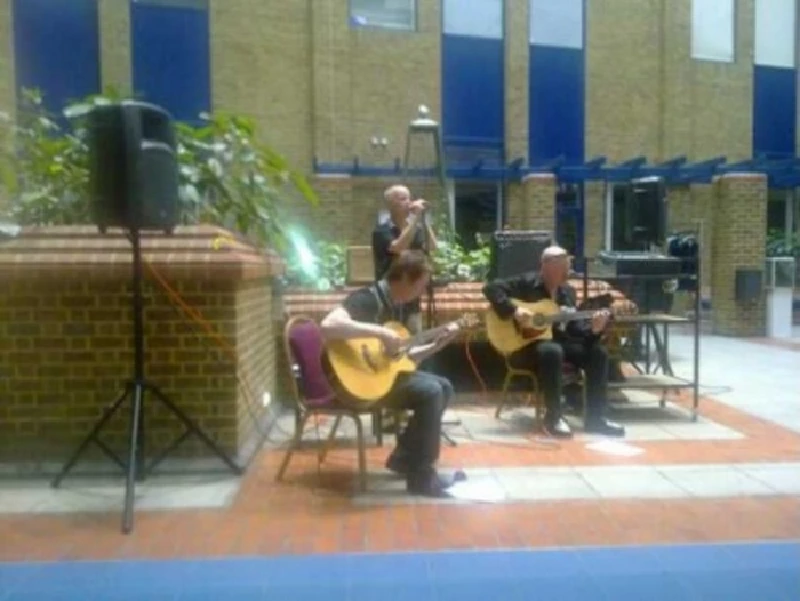
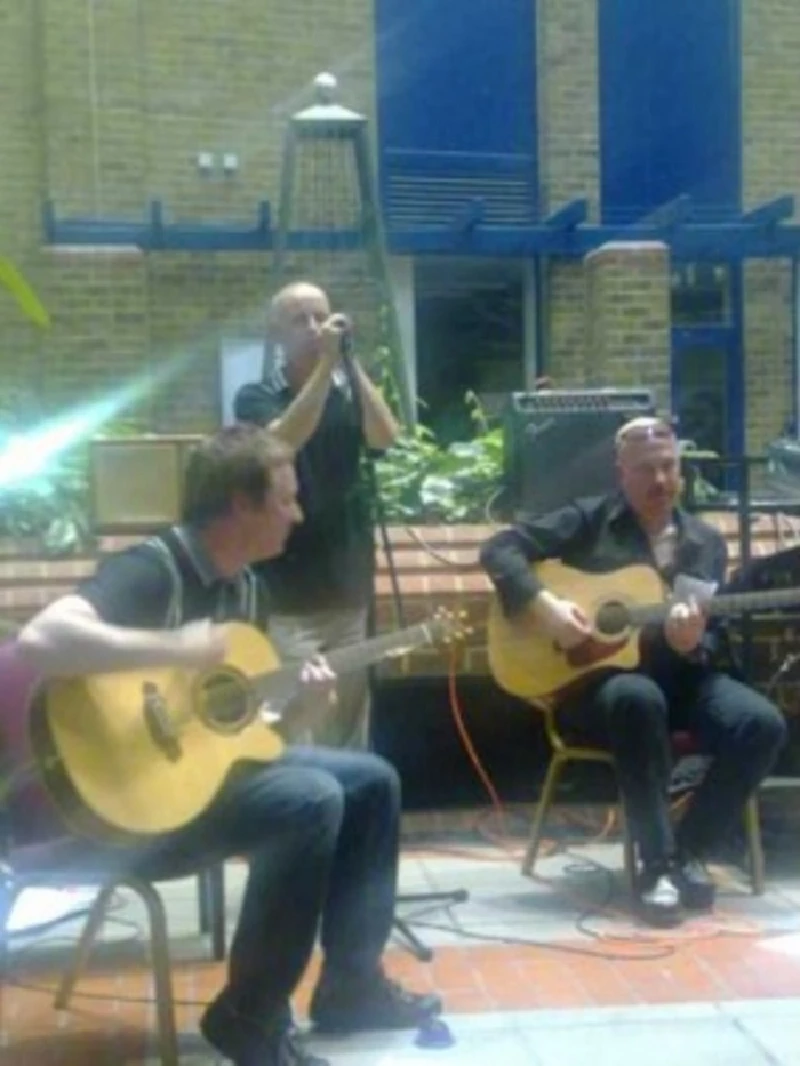
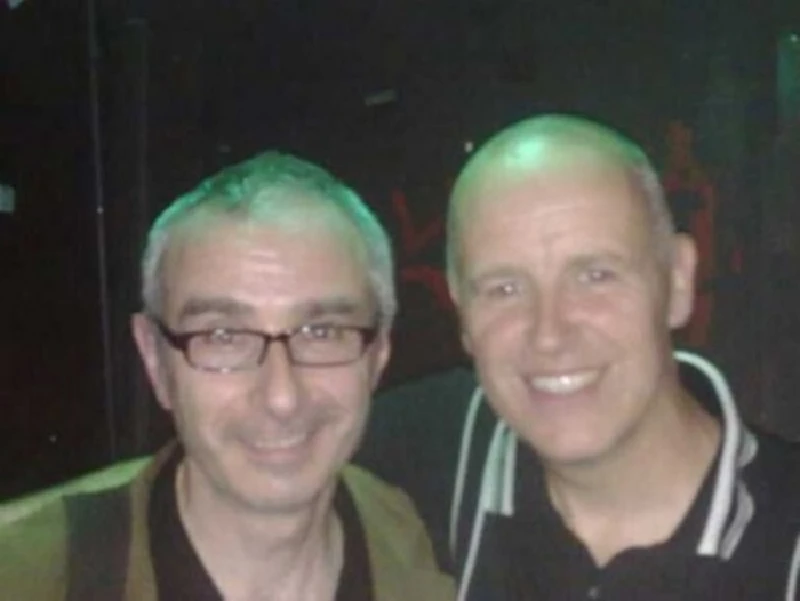
Visitor Comments:- |
| 2972 Posted By: craig boswell , manchester on 02 Sep 2022 |
|
Great Article so little is written about the Band that made 1983 the new summer of love
|
interviews |
|
Interview Part 3 (2010) |
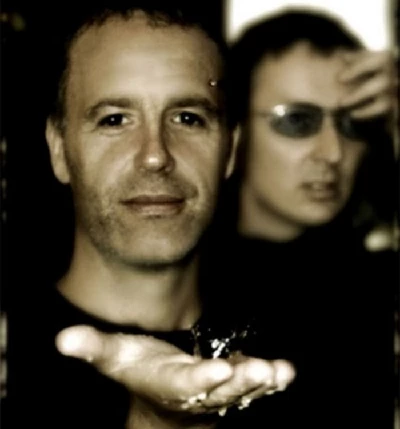
|
| In the third and final part of his interview with 80's new wave act the Lotus Eaters, Anthony Strutt speaks to them about their reformation in the mid 90s and plans for the future |
| Interview Part 2 (2010) |
| Interview with Jem Kelly (2002) |
most viewed articles
current edition
Carl Ewens - David Bowie 1964 to 1982 On Track: Every Album, Every SongBathers - Photoscapes 1
Armory Show - Interview with Richard Jobson
Colin Blunstone - Thalia Hall, Chicago, 16/7/2025
John McKay - Interview
Visor Fest - Valencia, Spain, 26/9/2025...27/9/2025
Billie Eilish - O2 Arena, London, 10/7/2025
Bathers - Photoscapes 2
Editorial - July 2025
Sir Tim Rice - Interview
previous editions
Heavenly - P.U.N.K. Girl EPOasis - Oasis, Earl's Court, London, 1995
Trudie Myerscough-Harris - Interview
Pixies - Ten Songs That Made Me Love...
Simon Heavisides - Destiny Stopped Screaming: The Life and Times of Adrian Borland
Beautiful South - Ten Songs That Made Me Love...
Prolapse - Interview
Boomtown Rats - Ten Songs That Made Me Love....
Blues and Gospel Train - Manchester, 7th May 1964
Donovan - Ten Songs That Made Me Love...
most viewed reviews
current edition
Amy Macdonald - Is This What You've Been Waiting For?Sick Man of Europe - The Sick Man of Europe
Alice Cooper - The Revenge of Alice Cooper
Phew, Erika Kobayashi,, Dieter Moebius - Radium Girls
Lucy Spraggan - Other Sides of the Moon
Blueboy - 2
Cynthia Erivo - I Forgive You
Davey Woodward - Mumbo in the Jumbo
Lapsley - I'm a Hurricane, I'm a Woman In Love
Philip Jeays - Victoria
Pennyblackmusic Regular Contributors
Adrian Janes
Amanda J. Window
Andrew Twambley
Anthony Dhanendran
Benjamin Howarth
Cila Warncke
Daniel Cressey
Darren Aston
Dastardly
Dave Goodwin
Denzil Watson
Dominic B. Simpson
Eoghan Lyng
Fiona Hutchings
Harry Sherriff
Helen Tipping
Jamie Rowland
John Clarkson
Julie Cruickshank
Kimberly Bright
Lisa Torem
Maarten Schiethart